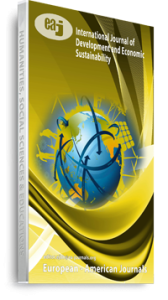It has been seen that Foreign exchange reserves adequacy is a key component of good macroeconomic management. The modified version of the buffer stock model was applied to assess the determinants of foreign reserve in Nigeria. The study regressed foreign reserve variable on macroeconomic variables: real income, interest rate differential (a measure of opportunity cost), exchange rate volatility, financial openness, current account vulnerability, benchmark stock of reserves, and the demand for foreign exchange. In order to avoid any spurious regression results, the time series data from 1970 -2010 was subjected to stationarity tests. The ADF cointegration procedure used suggested the existence of long run relationships. Hence, the short run dynamics was examined by means of an error correction model. The empirical evidence shows that growth in Nigeria’s foreign reserves is not influenced in the long run by current account vulnerability (proxied by trade opennes), the opportunity cost of holding reserves (DID) and the benchmark stock of reserves but by other determinants such as the real Gross Domestic Products (Y), exchange rate volatility (Ev), financial openness (Fop), and the demand for foreign exchange (DFex).
Keywords: Benchmark, Buffer Stock, Cointegration, Determinants, Error Correction, Foreign Reserves, Long-Run, Short-Run

